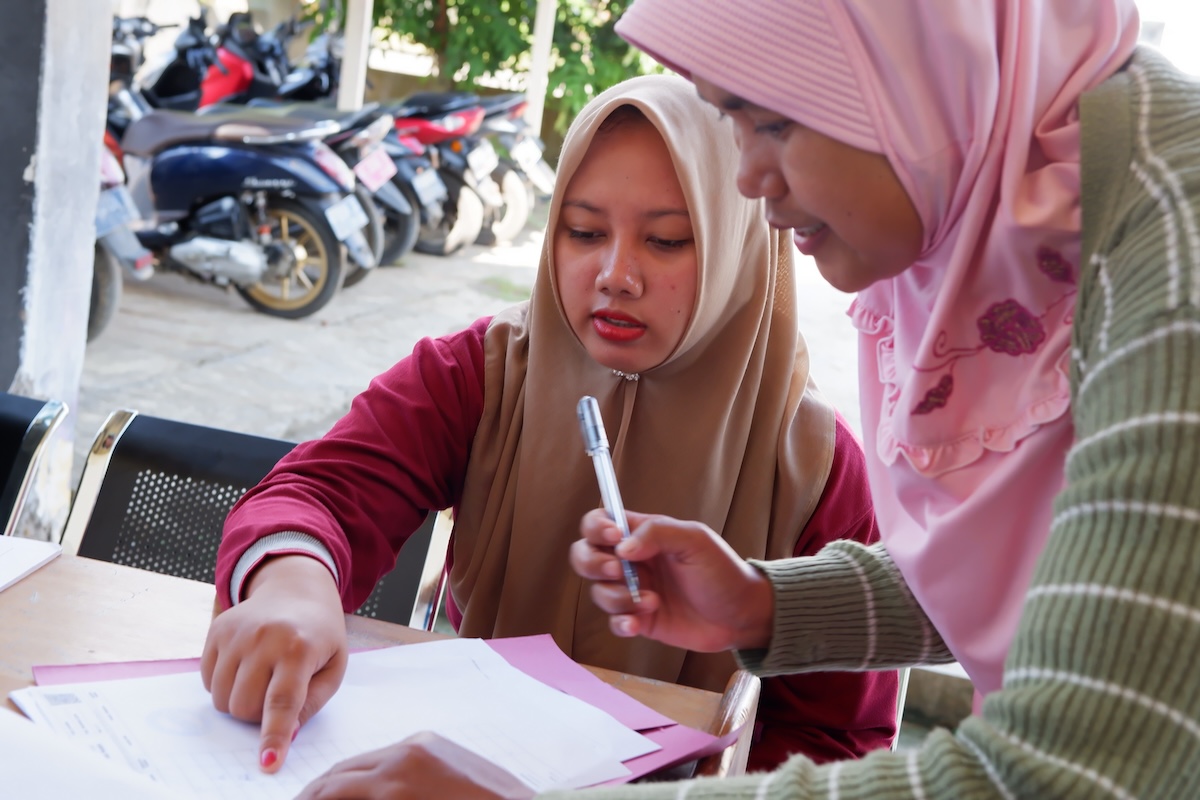TGIF, Agents of Impact!
- The maturing of impact investing
- Climate-smart insurance for farmers
- Private debt for emerging markets
🗣 The wisdom of maturity. Age can mean old. But with age can come maturity and with maturity can come wisdom. At ImpactAlpha, we’ve been reflecting on the maturing market for impact and sustainable investments, and signs that markets are wising to socially and environmentally-driven value creation. It’s the rule of law, not deregulation, that underpins economic growth, argues LinkedIn co-founder Reid Hoffman. Climate action is anti-inflationary in the face of the mounting costs of intensifying weather events. An economy that delivers for workers, also delivers for investors. And that US immigration surge? It’s a growth-driver that is set to boost federal revenues and reduce deficits over the next decade.
As the impact investing market in Latin America matures, early impact champion Rodrigo Villar of New Ventures is seeking to scale impact, not by raising ever larger private equity funds, but by going deeper with specialized investment vehicles to address specific challenges. “Enlightened intermediaries” can act as conduits between institutional investors and local communities in building bio-economies in the Amazon and elsewhere, NESsT’s Kirsten Dueck told ImpactAlpha’s Jessica Pothering. Pooled loan funds, time-tested in public finance, can be used to de-risk greenhouse gas reduction projects, Matt Posner of Court Street Group and James McIntyre of Inclusive Prosperity Capital argued on ImpactAlpha. In another guest post, Karthik Ramanna of Oxford’s Blavatnik School of Government shared insights into how the EU’s new carbon import tax could usher in rigorous standards for carbon accounting that can spread prosperity, not hurt it.
The wisdom of long-time investors can counter criticisms of efforts to promote diversity, equity and inclusion. Surdna Foundation’s Don Chen shared how impact fund managers like Impact America Fund graduated from the foundation’s program-related investment allocation to its return-seeking mission-related investment portfolio. Such private impact investments are outperforming the broader endowment, said Chen. In chronicling Kataly Foundation’s divestment from Wall Street, Lynne Hoey has aimed to demonstrate that “investing in communities and justice is possible,” and presents less risk than legacy investors would have you believe. The growing market for employee ownership is also growing up. Obran, a worker-owned “cooperative conglomerate,” snagged an investment from Acumen America, reported Roodgally Senatus. Markets are wising up to the alpha in impact. – Dennis Price
The Week’s Podcast
🎧 This Week in Impact. Host Brian Walsh takes up top stories with ImpactAlpha’s Jessica Pothering. Up this week: How New Ventures is going big by going niche, inside Obran’s worker-owned conglomerate of cooperatives, and why Surdna Foundation’s Don Chen is putting assets behind impact funds led by women and managers of color.
- Listen to the new episode of This Week in Impact. Get the podcast in your feed by subscribing on Apple or Spotify.
The Week’s Deal Spotlight
Uptick in climate-smart insurance for vulnerable farmers. Climate-related disasters caused an estimated $250 billion in damages worldwide last year. The increasing frequency of extreme weather events is hitting low-income and agriculture-dependent households in emerging markets disproportionately hard. So-called parametric insurance speeds payouts by automatically paying policyholders when certain incident thresholds are triggered, such as cyclone strength or flood levels. Luxembourg-based IBISA designs and prices parametric products for insurers and other financial institutions that protect farmers and agrifood businesses in Africa and Asia against drought, typhoons, flooding, high heat and other weather incidents. The insurance tech company this week raised $3 million in an early funding round backed by Acumen’s Resilient Agriculture Fund, or ARAF, along with Ankur Capital, Equator, and the Asian Development Bank.
- Livelihood protection. Asia has experienced the highest total climate-related agricultural loss worldwide in the past 30 years; Africa has seen the greatest loss in terms of GDP. But access to affordable crop and livestock insurance is scarce. One of IBISA’s policies provides heat stress protection for dairy farmers in India, which just weathered its longest heatwave on record. The policy is being expanded to Bangladesh. IBISA has also partnered with the Philippines’ second largest mutual insurer, Climbs Insurance, to provide farmers with coverage against excess rainfall and wind.
- Parametric providers. Parametric insurance providers are few in number but growing. Policyholders gain protection without the hassle and wait involved with filing claims. Insurers benefit from predictability and risk mitigation in their portfolios, even as climate incidents increase. Switzerland-based Pula, which provides crop protection to African farmers, raised $20 million this year to expand into livestock insurance. Brazil-based Newe covers low-income communities and smallholder farmers. Zambia-based Acre Africa designs parametric products for farmer cooperatives (listen to ImpactAlpha’s conversation with Acre Africa’s Niza Banda). Insurance startups are testing the model in the US and Europe as well. FloodFlash in the UK and Floodbase in the US both provide coverage for flood victims.
- Go with the dealflow. Share this post and check out the full roundup of ImpactAlpha’s deal reporting this week.
The Week’s Short Signals
👷🏾♀️ Worker power. The American worker is doing better than at any time on record, says a new report by the Economic Innovation Group. The median worker is better paid and better educated, workplaces have never been safer, employers are offering more benefits, and a record share of workers have access to paid sick and family leave. (EIG)
😎 Solar abundance. Solar will likely be the biggest source of electrical power on the planet by the mid 2030s. “In its radical abundance, cheaper energy will free the imagination, setting tiny Ferris wheels of the mind spinning with excitement and new possibilities,” declares The Economist in an uncharacteristically exuberant package on solar power. (The Economist)
🌊 Building resilience. The US Chamber of Commerce, the powerful US business trade group known for lobbying against climate policy, is urging companies and cities to invest in climate resilience. Each $1 of investment in resilience and disaster preparedness reduces economic costs by $7 after an event, it says. That’s in addition to $6 of damage savings. (CoC)
🏦 Private debt. The number of private debt impact funds have grown nearly 250% over the past decade, to 394 funds (117 of them open for investment), according to Phenix Capital’s latest tally. More than two-thirds have an emerging market focus. “Investors like this strategy as a gateway to the emerging markets,” says Phenix. (Phenix Capital)
🌍 Climate majority. A global survey of 75,000 people in 77 nations found that 80% want their countries to step up their climate action and nearly 90% want them to put aside political differences and cooperate on addressing global warming. Some of the largest majorities were in fossil fuel-heavy counties including China, India and Saudi Arabia. (The Guardian)
The Week’s Talent and Jobs
💼 See and share more than a dozen new impact jobs posted this week on ImpactAlpha’s Career Hub and view hundreds of more jobs in impact investing and sustainable finance. Have a job listing to post? Submit it here.
Criterion Institute’s Joy Anderson, Jackie VanderBrug of Putnam Investments and the late Catalyst at Large Suzanne Biegel receive the Joan Bavaria Award at this week’s US SIF conference for their work building the field of gender-lens investing… Ayana Parsons, co-founder of Fearless Fund, stepped down as chief operating officer.
The California Endowment appointed Kelli Washington, formerly with Cleveland Clinic, as chief investment officer… Kate Cochran stepped down as the CEO of Upaya Social Ventures. AB Chakravarthy, Upaya’s India country director, and Shruti Goel, director of impact and partnerships, will become co-CEOs, starting in August.
FedEx named Karen Blanks Ellis as chief sustainability officer, replacing Mitch Jackson, who retires at the end of June… The University of Michigan welcomed Shalanda Baker, previously the US Department of Energy’s Office of Energy Justice and Equity director, as its first vice provost for sustainability and climate action… Community Investment Management hired Ravi Vukkadala, previously with Northern Arc Investment Managers, as its country director in India.
Community Capital Management added Allison Brink, formerly with Great Lakes Advisors, as head of distribution; and Julia Winck, a recent Northwestern University graduate, as impact research analyst. CCM promoted Jessica Botelho to co-chief impact strategist, and Adele MacEwen to impact and financial data manager.
That’s a wrap. Have a wonderful weekend.
– June 28, 2024











